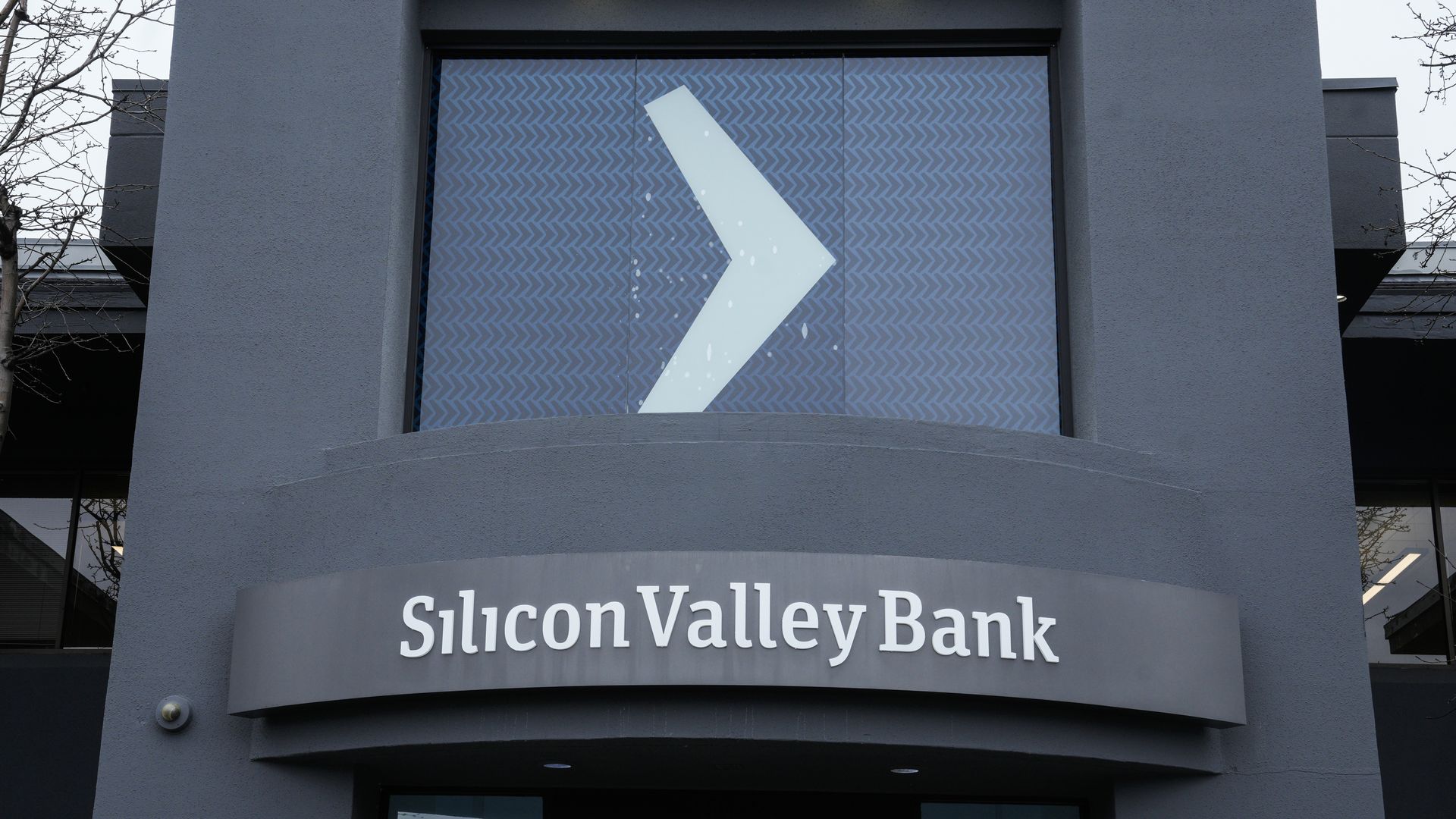Some bank shares plunge, despite efforts to stem crisis
Add Axios as your preferred source to
see more of our stories on Google.

Photo: Philip Pacheco/Getty Images
The government stepped in Sunday night to guarantee all deposits held at the failed Silicon Valley Bank — but after a brief respite, the crisis flared anew Monday morning as shares of First Republic Bank cratered in premarket trading.
Why it matters: All SVB depositors — even the roughly 90% held in accounts above the Federal Deposit Insurance Corporation's $250,000 limit on insurance — will have access to their money this morning.
- Policymakers and those in the financial sector had hoped such efforts would prevent other regional banks from experiencing runs similar to the one SVB saw if any of those funds weren't available.
Yes, but: The initial signs Monday morning weren't great, as the share price of First Republic Bank, a San Francisco-based lender that serves some of the same clientele as SVB collapsed by more than 70% shortly before 7am in the pre-market trading session.
- The collapse came despite an announcement from the bank that it had shored up its finances with additional funding from the Federal Reserve and JPMorgan.
- PacWest Bancorp, another smaller California bank also fell sharply Monday morning.
- Prices of short-term Treasury bills soared, as investors sought safety.
What happened: Sunday evening, the Federal Reserve, FDIC and Treasury Department jointly announced plans to nip the burgeoning SVB banking crisis in the bud.
What they did: Because the SVB situation posed a risk to the economy and the financial system, the Fed, the FDIC and the Treasury Department recommended that they make an exception — which is allowed under the law — to the way the government resolves bank failures.
- The "systemic risk exception" allows them to use the FDIC's Deposit Insurance Fund — a pool of money funded by payments from banks — to make sure that even those with more than $250,000 at SVB don't lose any of their deposits.
- The same exception was made for Signature Bank, a New York bank that has been wobbling since SVB collapsed. It was closed Sunday by regulators — the third bank failure in a week, after Silvergate and SVB.
Separately, the Federal Reserve announced a new program aimed at making it easier and more attractive for banks to borrow against assets like Treasury bonds if they find themselves under pressure to come up with cash.
- That way banks wouldn't have to sell those bonds, many of which have declined in value as interest rates rose. That's what SVB did last week — generating a large loss that helped kick off the market panic.
Between the lines: The Biden administration is keen that yesterday evening's announcement about deposits not be seen as a "bailout," one of the more toxic concepts to the American electorate.
What they're saying: "The banks, equity and bondholders are being wiped out. They took a risk as the owners of these securities, they will take the losses," said a senior Treasury Department official on a call with reporters.
- "The firms are not being bailed out. The depositors are being protected," the official said.
- SVB's senior management has also been removed.
What we're watching: News about possible buyers for SVB and Signature.
The bottom line: With shares of regional banks plunging, it seems like the government's steps weren't sufficient to snuff out the panic completely.
